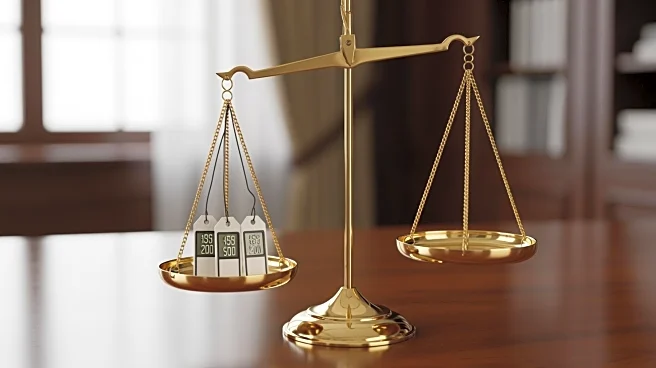What's Happening?
The government is set to announce a ban on reselling tickets to live events for profit, aiming to tackle ticket touts and resale sites that offer tickets at inflated prices. This decision follows a campaign
by major music artists, including Sam Fender, Dua Lipa, and Coldplay, who urged the government to protect fans from exploitation. The Department for Culture, Media and Sport (DCMS) plans to enforce a limit at the original ticket cost, while also capping extra fees to prevent price inflation. The move is expected to save fans an average of £37 per ticket and collectively £112 million per year. Resale platforms will be legally required to monitor and enforce these new regulations.
Why It's Important?
This initiative is significant as it addresses the long-standing issue of ticket touting, which has caused financial strain for fans and negatively impacted the live events industry. By capping resale prices at face value, the government aims to improve access for genuine fans and eliminate the practice of industrial-scale ticket touting. The decision is expected to enhance the relationship between fans and artists, which is crucial for the music industry, valued at £8 billion. However, resale sites like Viagogo and Stubhub have raised concerns that a price cap might drive consumers to unregulated platforms, increasing the risk of fraud.
What's Next?
The government is expected to announce the ban officially, and the new laws will require resale platforms to comply with the regulations. The DCMS will oversee the enforcement of these rules, ensuring that ticket prices remain fair and accessible. The move may prompt other countries to consider similar measures to protect fans from ticket touting. Additionally, the government may include the necessary legislation in the King's Speech to prioritize the price cap.
Beyond the Headlines
The ban on reselling tickets above face value could lead to broader implications for the live events industry, including changes in how tickets are distributed and sold. It may also influence the secondary ticket market globally, encouraging other nations to adopt similar consumer protection measures. The initiative highlights the ethical responsibility of ensuring fair access to cultural and sporting events, potentially setting a precedent for future consumer protection policies.











